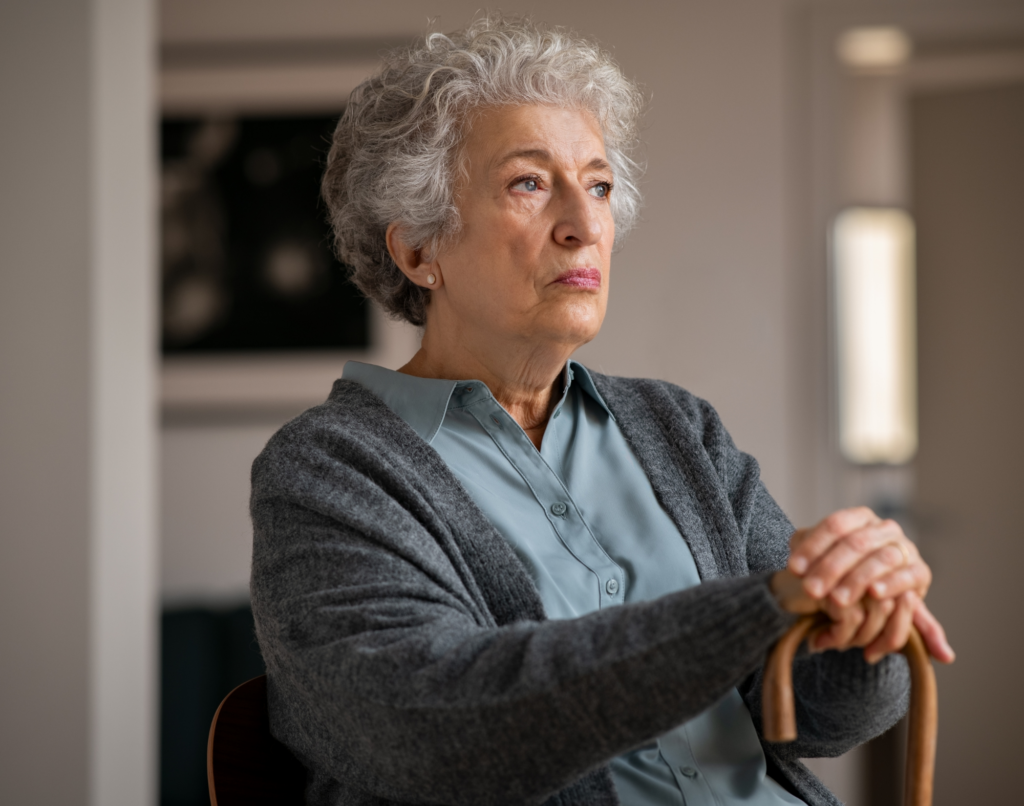Adults over 65 are particularly vulnerable to the sting of loneliness and isolation. Aging brings with it many changes and challenges that contribute to a solitary life. Social circles are shrinking. Children and family members move away. Retirement puts an end to regular interactions with colleagues. Challenges to mobility make travel difficult. Age-related hearing loss can impair communication. When Older Adults are no longer able to gather with others, loneliness, isolation, and depression can set in.
Effects of Loneliness on Senior Citizens
A lack of fulfilling personal relationships impacts physical, mental, and emotional health. Isolation is a risk factor for a variety of physical ailments and is linked to a higher mortality rate for both men and women. The impact of loneliness is similar to that of chronic stress. It raises the levels of stress hormones, which impairs the immune system and contributes to inflammation. Prolonged isolation contributes to emotional and mental health issues, such as anxiety and depression. Moreover, adults over 65 who report feeling lonely tend to show a decrease in activities of daily living such as bathing, dressing, cleaning, and eating. Unchecked loneliness jeopardizes Older Adults’ ability to care for themselves, decreasing their capacity to age-in-place.
Combating Loneliness in Senior Citizens
There are many strategies for alleviating social isolation in Older Adults. All it takes is a bit of effort. The first step is to listen and observe. Encourage elderly loved ones to express themselves. “Tell me more” is a simple and powerful phrase. Dig down deep and discover their interests and hobbies. Help them adapt those activities to fit their current lifestyle. Sometimes people need a creative push in the right direction to step outside their comfort zone and discover new ways to rekindle dormant passions. For example, mobility issues prevented a former gardener from pursuing her passion until her caregiver built stand-up vegetable gardens that don’t require bending and reaching.
Ask questions and let your loved ones pass on a lifetime of hard-earned knowledge. Let their experiences guide you in anything and everything. For example, if your mother always loved quilting, let her teach you the skill. This is a great bonding experience and can restore the child-parent dynamic that was lost when the caregivers switched roles. Bridge the generation gap between grandparents and grandkids as well. Devise ways to bring multiple generations together via phone, video, and mail. Host weekly video chats where Seniors and grandchildren can share their interests and passions. Grandparents also make great pen-pals for children.
In-home care from a Companion or Certified Homemaker-Home Health Aide (CHHHA) also goes a long way in combating loneliness and isolation in Senior Citizens. A regular visitor is an invaluable companion for Older Adults who feel socially isolated and alone. At Anita’s Angels, Inc., we are Families Helping Families. Call us to learn how one of our Companions or CHHHAs can help your loved one—908-788-9390.





